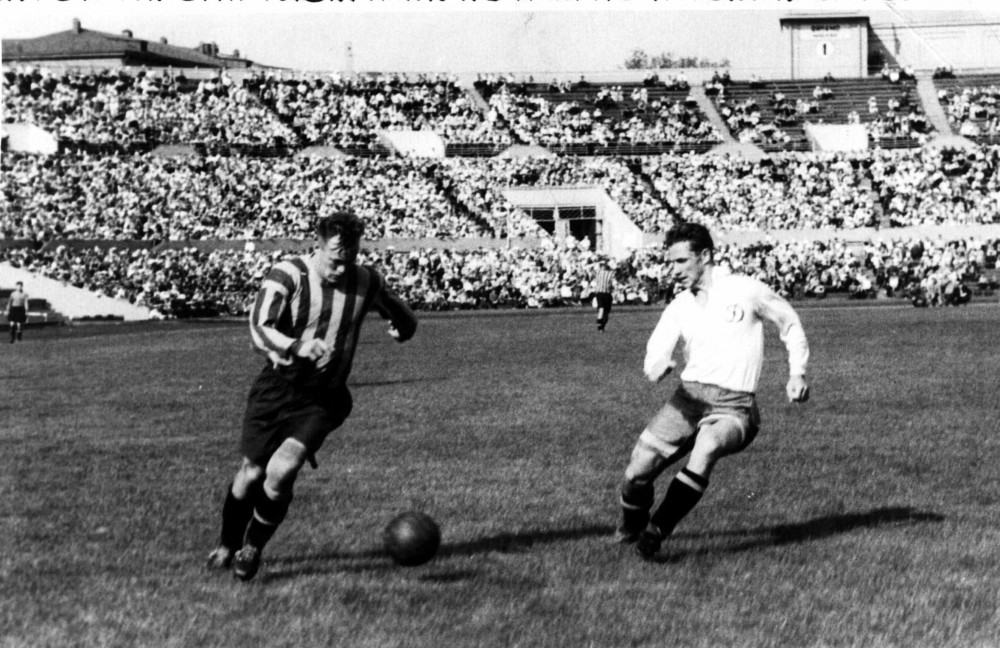
After World War II socialist Yugoslavia became one of the most loyal USSR satellite states. The new government began to copy the Soviet Union in all aspects of society and government. An important element in the creation of a new socialist society was the attitude towards sport. In accordance with the Soviet model, the task of sport as part of physical education in Yugoslavia was to improve the working and defensive capabilities of citizens, where physical training was no longer the privilege of a minority but the obligation for everybody. However, despite the Soviet influence, different views on the recent events (i.e. the USSR’s role in the liberation of Yugoslavia) and a different vision of the future bilateral relations have led to a cooling of relations between the Soviet Union (along with other European communist countries) and Yugoslavia. During 1948 even armed intervention was considered as an option. Deteriorating diplomatic, political and economic relations also began to show at sport events. Yugoslav clubs were prohibited from participating in sport competitions that were already scheduled across Eastern Europe, and the culmination of this “sport war” took place at the Olympic Games in Helsinki in 1952. At these Olympics, the first for the USSR, Yugoslavia and the USSR played a match at the football tournament. Due to the situation at the time, it was not just a sport event, but a political event as well. The win of one or the other national team would mean the victory of the specific (Yugoslav or Soviet) concept of socialist development. Despite the global trends, Croatian historiography still lacks studies that contain research of interrelations between socio-political processes, sport events and sport in general. Collecting evidence from primary and secondary sources as well as the material based on oral history, the present paper provides a study of a specific sport event in the context of international political relations. Even though the research topic of Yugoslav-Soviet relations in the late 1940s and early 1950s is wellknown and well-researched, this approach provides a new dimension to it. Accordingly, the present paper aims to fill aRefereed Journal. History and Archaeology in Countries. 2016 №3 str research gap in Croatian historiography and is intended to serve as an inducement for further research in the field.
Source: Klasić H. (2016). The Tito-Stalin Football War. Journal of the Institute of Croatian History. Vol. 48: 387-404
Source web-site: https://hrcak.srce.hr/index.php?show=clanak&id_clanak_jezik=258669
Number of views: 4253